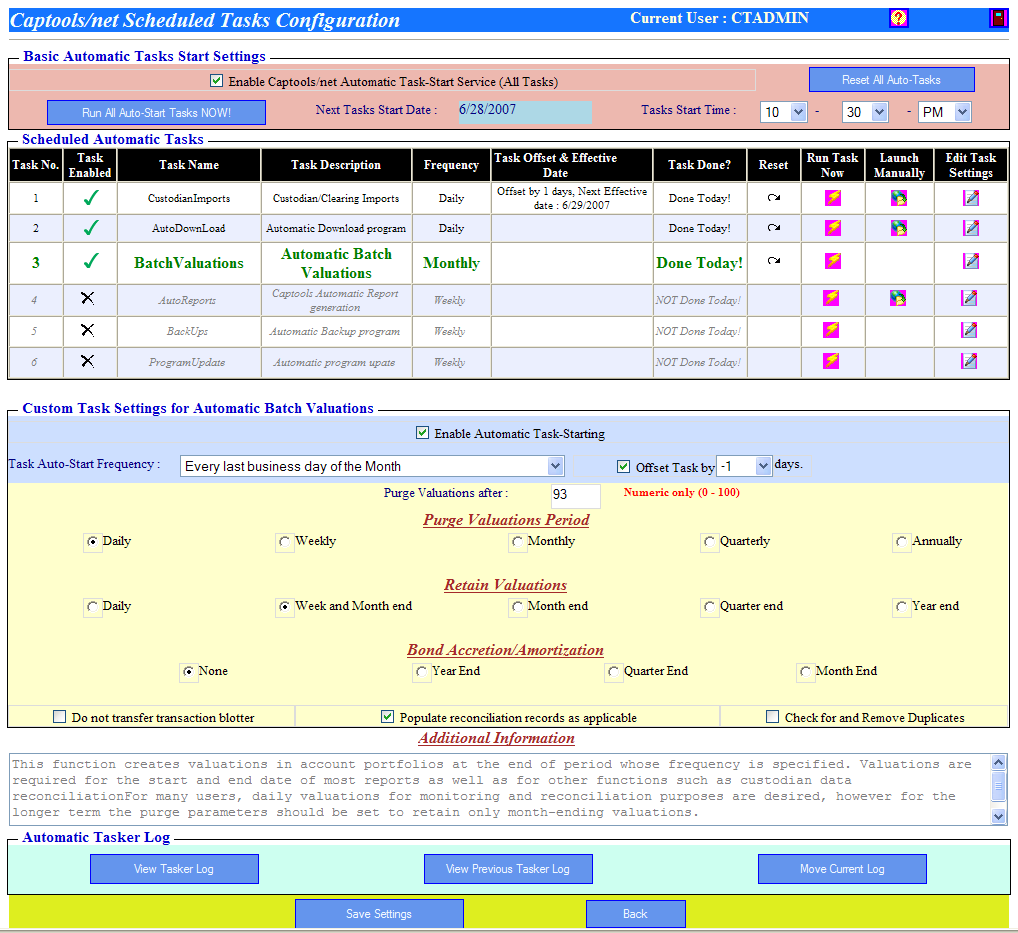|
Batch Valuation Task |

|

|
|
|
Batch Valuation Task |

|

|
Batch Valuation Task
Many Captools/net reports require that account portfolio valuations exist for the report start and end dates. Some other functions such as account rebalancing and reconciliation likewise require that account valuations exist for the relevant dates. The Batch Valuation task performs the function of creating such valuations, and in the case of the most recent valuation, refreshes the reconciliation records to update them to the most recent valuation.

The batch valuation offset days should be no less than that used for custodian imports, if custodian imports are used. The reason for that is that the custodian data will be required for the valuation computations and for generation of the reconciliation records. It is important that you view the reconciliation records for discrepancies before the next task, Auto Report Generation triggers.
Valuation Purging
If you create daily or weekly valuations, the database will eventually grow considerably in size due to the storage of the underlying position records for each account holding on each valuation date store. The consequence of this is that the access speed of the database will decrease. Also, if you are using the MS SQL-Express version of the database rather than the MS SQL Server version, you may eventually run into the database size limits imposed by the MS SQL-Express version. The Batch Valuation scheduling provides a way for you to mitigate these problems by permits you to specify that only week-ending, month-ending and/or quarter-ending valuations be retained in the database after a certain time has elapsed. This is accomplished by setting the valuation "Purge" criteria to delete older valuations that do not meet the criteria for "Retaining Valuation". In the above example, all valuations other than week-ending and month-ending valuations are purged after 93 days have elapsed (this is the Captools/net default setting). In our judgment, retaining week-ending and month-ending valuations is more than sufficient to obtain accurate time-weighted ROI computations, as well as complying with generally accepted performance reporting standards. Week and month-ending valuations also should suffice to support the reporting intervals desired by most users.